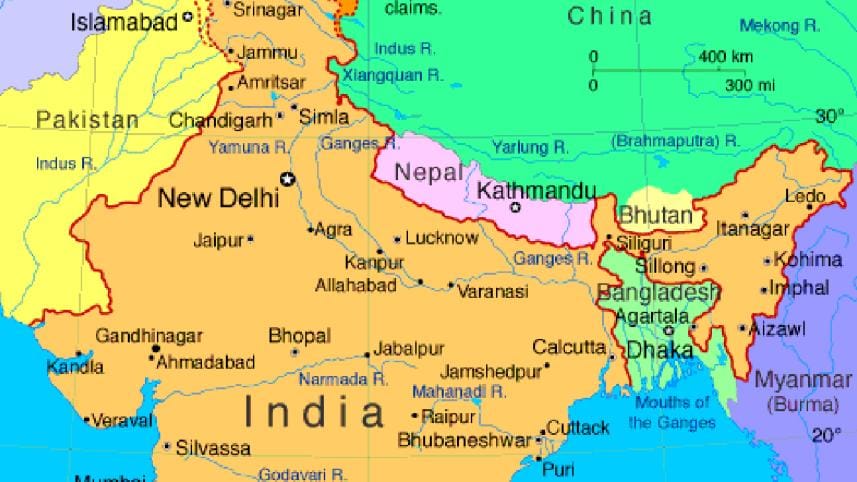No border for vehicles by end of 2015

In a major push towards sub-regional cooperation, four South Asian countries are set to sign an agreement on June 15, which would allow movement of vehicles through their borders just like in the 27 European Union countries.
Bangladesh, Bhutan, India and Nepal (BBIN) have finalised the deal for a seamless transit of passenger, personal and cargo vehicles between their countries by end of 2015.
The agreement will allow vehicles to ply designated routes in the four countries and reduce cost and time of unloading and loading of people and goods at the borders, making cross-border trade more efficient, officials said.
Diplomatic sources in Dhaka yesterday told The Daily Star that transport ministers of the four Saarc (South Asian Association for Regional Cooperation) countries would meet in Thimphu, Bhutan, on June 15 and sign the Motor Vehicles Agreement (MVA).
Though there are several procedural matters to implement the agreement, officials, however, were confident of expeditiously completing all negotiations and start plying of vehicles by the end of this year.
“This connectivity between the four countries will be considered as a milestone in regional communication and development,” said Obaidul Quader, road transport and bridges minister.Talking to The daily Star yesterday, he said the four-nation initiative would bring immense benefit for the people as it would facilitate the transit of all types of vehicles between the contracting parties like in the European Union countries.
The four-nation MVA is taking place a week after Indian Prime Minister Narendra Modi's visit to Bangladesh when he along with PM Sheikh Hasina will inaugurate third (Dhaka-Shillong-Guwahati) direct bus services between India and Bangladesh.
Dhaka and New Delhi have also planned to open four more routes for such bus services between Bangladesh and India.
This sub-regional move is an initiative parallel to the proposed Saarc Motor Vehicles Agreement, and will be open also to other neighbouring countries, should they desire.
Diplomatic sources said after the MVA, the BBIN would go for setting up electricity grid between the four countries and initiate power trading.
The MVA will allow vehicles to travel along designated key routes in the four countries without the need for trans-shipment of goods and passengers at the border crossings.
Asked about the formalities following the signing of the deal, diplomatic sources said the arrangements for implementing the agreement would be spelt out through protocols in which the four countries would negotiate separately under the framework of this agreement.
After the signing of the deal, the four countries will set up individual national committees and a sub-regional joint committee for overall facilitation of land transport and to coordinate and monitor the agreement's implementation.
In the MVA, officials said it was proposed how private cars, commercially-run buses, ambulances and commercial cargoes could move across the region.
The draft text also stipulated that drivers must have special driving licences, cars must have certain fitness level and there must be a regional insurance coverage for any accident.
Respective taxation offices of these countries would deal with only transit fees and charges as well as other customs.
Upon implementation, the agreement would help transform transport corridors linking the four countries into economic corridors and enhance people to people contact.
The political leadership of the four countries recognised the urgent need to ease the movement of passenger and goods across their borders to stimulate trade and commerce.


 For all latest news, follow The Daily Star's Google News channel.
For all latest news, follow The Daily Star's Google News channel.
Comments